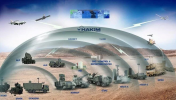The U.S. demand that Turkey turn over its S-400 anti-aircraft batteries for examination represents a significant point of tension between the two NATO allies. The S-400 system, acquired from Russia by Turkey in 2019, has been a major sticking point in U.S.-Turkey relations. The U.S. has imposed sanctions on Turkey under the Countering America's Adversaries Through Sanctions Act (CAATSA) and removed Turkey from the F-35 fighter jet program, citing concerns that the presence of the Russian-made system in a NATO country could compromise the security of Western military technology, including the F-35.
Background on the S-400 Acquisition
Turkey’s decision to purchase the S-400 air defense system from Russia was a significant move, signaling a shift in its defense procurement policy and deepening ties with Moscow. The deal was seen as controversial because Turkey is a key member of NATO, and the S-400 system is incompatible with NATO’s integrated defense systems. The U.S. argued that operating the S-400 alongside NATO technology, such as the F-35, could allow Russia to gather sensitive information about Western military capabilities.
Despite repeated warnings from the U.S., Turkey went ahead with the purchase, claiming it was driven by national security needs after failed attempts to procure an air defense system from NATO allies. The acquisition led to heightened tensions between Washington and Ankara, ultimately resulting in U.S. sanctions on Turkish defense industries and the expulsion of Turkey from the F-35 program.
U.S. Demands for Examination of the S-400
The current U.S. demand for Turkey to turn over the S-400 batteries for examination suggests that the U.S. is seeking a technical analysis of the system. By examining the S-400, the U.S. would likely aim to assess its capabilities, vulnerabilities, and potential threats to NATO’s military assets. Washington's insistence on such a concession reflects its broader strategy to mitigate the risks associated with Turkey’s possession of the S-400, particularly in the context of NATO security.
The U.S. position is clear: unless Turkey complies and allows the examination of the system, the sanctions imposed under CAATSA will remain in place. The demand also implies that the U.S. seeks to ensure that Turkey does not operationalize the S-400 in ways that could compromise the integrity of NATO’s defense systems. Allowing U.S. access to the S-400 might also reassure Washington that Turkey is not deepening its defense cooperation with Russia in ways that could further undermine NATO unity.
Turkey’s Position and Potential Repercussions
Turkey has, so far, resisted such demands, emphasizing its sovereign right to choose its defense partners and military equipment. Ankara argues that its acquisition of the S-400 is a matter of national security and that the system will not be integrated into NATO’s networks, mitigating the U.S. concerns. Turkish President Recep Tayyip Erdoğan has repeatedly affirmed Turkey’s decision to proceed with the S-400, stating that the purchase was final and non-negotiable.
However, the U.S. demand puts Turkey in a difficult position. Complying with the request could potentially lead to the lifting of sanctions, easing the economic pressure on Turkey's defense sector and opening the door to improved relations with Washington. On the other hand, handing over the S-400 batteries to the U.S. for examination could damage Turkey’s relations with Russia, as it would likely be seen as a betrayal of their defense agreement.
Broader Implications for NATO and U.S.-Turkey Relations
This standoff has broader implications for NATO cohesion and U.S.-Turkey relations. Turkey’s insistence on maintaining the S-400, despite U.S. opposition, has raised concerns within NATO about Ankara’s long-term strategic orientation and its growing ties with Russia. The demand to examine the S-400 is part of Washington’s effort to contain the potential risks posed by Turkey’s alignment with Moscow in the defense sector.
If Turkey refuses to comply, the U.S. could maintain or even escalate sanctions, further isolating Turkey within NATO. On the other hand, Turkey’s willingness to hand over the S-400 batteries for examination could pave the way for improved relations with the U.S., though it might complicate its defense relationship with Russia.
Conclusion
The U.S. demand for Turkey to turn over its S-400 batteries for examination highlights the deep strains in U.S.-Turkey relations. This request is a critical test of Turkey’s strategic balancing act between maintaining its sovereignty in defense procurement and managing its relationships with both NATO and Russia. If Turkey accedes to U.S. demands, it could see sanctions lifted, but at the potential cost of its relationship with Russia. Refusal, however, could further isolate Turkey within NATO and prolong the sanctions that are already impacting its defense industry.







